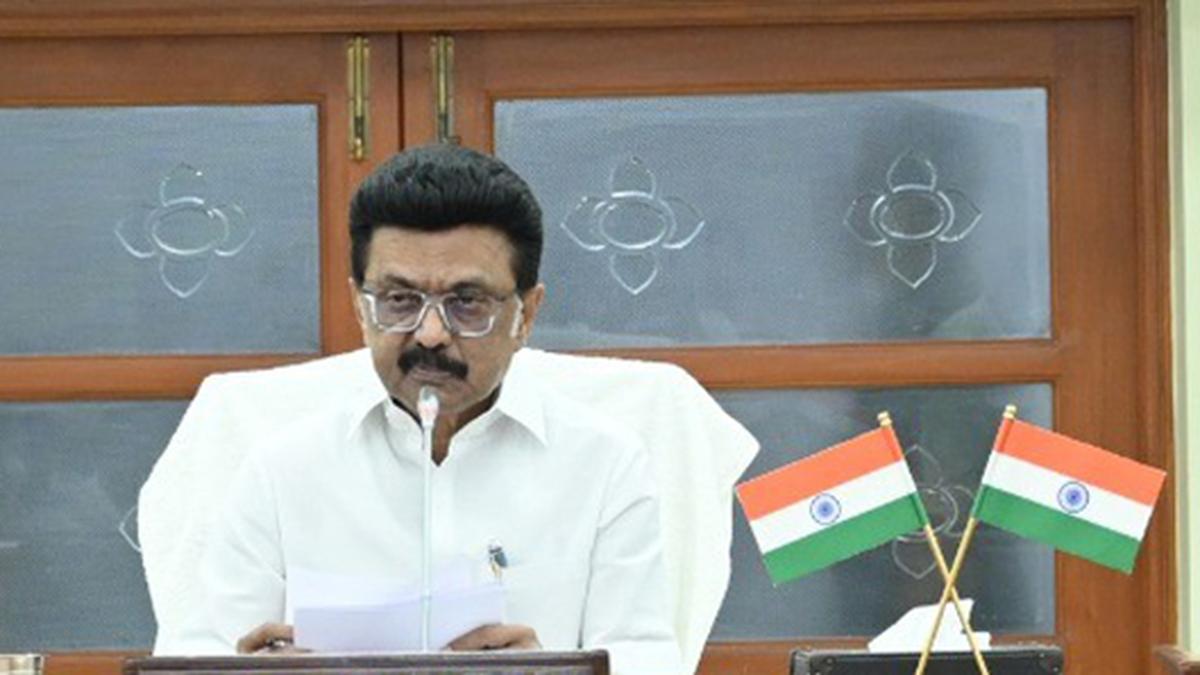 |
|
The recent admission of Tamil Nadu Chief Minister M.K. Stalin to Apollo Hospitals in Chennai due to mild giddiness-related symptoms has understandably sparked interest and concern among the public and political circles. While the press release assures that the Chief Minister is expected to continue discharging his official duties from the hospital, the situation raises several important questions regarding governance, healthcare, and the balance between public service and personal well-being. Understanding the nuances of this situation requires a careful examination of the context, the potential implications, and the broader issues it highlights.
Firstly, it is crucial to acknowledge that Chief Minister Stalin's health is a matter of public interest. As the leader of a major state in India, his ability to effectively govern directly impacts the lives of millions. Therefore, transparency and accurate information regarding his health are essential. The press release, while providing some basic details, lacks specific information about the nature and severity of the giddiness. While respecting the Chief Minister's privacy is important, the public deserves to know enough to be reassured that the situation is under control and that appropriate measures are being taken to ensure the continuity of governance. A more detailed explanation, perhaps from a medical professional, would help alleviate anxieties and prevent the spread of misinformation.
Secondly, the decision for the Chief Minister to continue discharging his duties from the hospital is a complex one. On one hand, it demonstrates a commitment to public service and a desire to minimize disruption to the administration. In a fast-paced and demanding political environment, the pressure to remain active and engaged is immense. However, it is also crucial to consider the potential risks to the Chief Minister's health. Rest and recuperation are essential for recovery, and attempting to work while unwell could prolong the illness or even lead to complications. Furthermore, the quality of decision-making could be compromised if the Chief Minister is not in optimal health. A balance must be struck between the demands of the office and the need for personal well-being. It is important to question whether alternative arrangements, such as temporarily delegating certain responsibilities to other ministers, might be more prudent in this situation.
Thirdly, this incident raises broader questions about the pressures faced by political leaders in India. The demands of modern politics are relentless, requiring long hours, constant travel, and the ability to handle immense pressure. This can take a significant toll on the physical and mental health of those in leadership positions. It is important to acknowledge the human cost of public service and to promote a culture that values well-being and encourages leaders to prioritize their health. Creating a system that allows for adequate rest and recuperation is not only beneficial for the individual leader but also for the overall effectiveness of the government. Furthermore, the incident prompts reflection on the healthcare system accessible to leaders, and how the standards can be improved for all citizens.
The announcement of further tests adds another layer to the situation. Diagnostic evaluation is crucial in order to accurately diagnose the reasons for the giddiness symptoms and choose the appropriate medical treatment. Whilst there is no information given on what tests would be done, this should provide a better insight into the causes of the symptoms and the proper route to recovery. Depending on the test results, further management might be required, and it is important to consider these possibilities when discussing the best course of action for the Chief Minister to take. The tests are, therefore, a significant aspect of the situation, as the outcome will ultimately shape the trajectory of the Chief Minister’s illness and recovery.
Moreover, the choice of Apollo Hospitals, a private healthcare provider, for the Chief Minister's treatment also warrants consideration. While Apollo Hospitals is a reputable institution with experienced medical professionals, the decision to seek treatment in the private sector could be interpreted in various ways. Some might see it as a reflection of the perceived quality of care offered by private hospitals compared to public ones. Others might view it as a missed opportunity to showcase the capabilities of the public healthcare system and to demonstrate confidence in its ability to provide high-quality medical care. Ideally, political leaders should be strong advocates for improving the public healthcare system and ensuring that all citizens have access to quality medical care, regardless of their socio-economic status.
Furthermore, the timing of this event also needs to be considered. This happened on July 21, 2025, which places it at a specific point in the Chief Minister’s term and the political landscape of Tamil Nadu. Depending on the prevailing political conditions, this could have ramifications for the ruling party, the opposition, and the overall stability of the government. Potential implications should be assessed and plans put in place to address any challenges that may arise. Political instability or uncertainty could deter investments, influence public sentiment, and disrupt the implementation of government policies.
In conclusion, while the press release provides a brief overview of Chief Minister Stalin's health condition, it raises several important questions about governance, healthcare, and the balance between public service and personal well-being. Transparency, thoughtful decision-making, and a broader discussion about the pressures faced by political leaders are essential to ensure that the situation is managed effectively and that the interests of the public are protected. It is crucial for the government to provide more detailed information, for healthcare professionals to offer their expertise, and for the public to engage in a constructive dialogue about these important issues. Ultimately, the goal should be to ensure that Chief Minister Stalin receives the best possible care and that the government of Tamil Nadu continues to function effectively in his absence.
